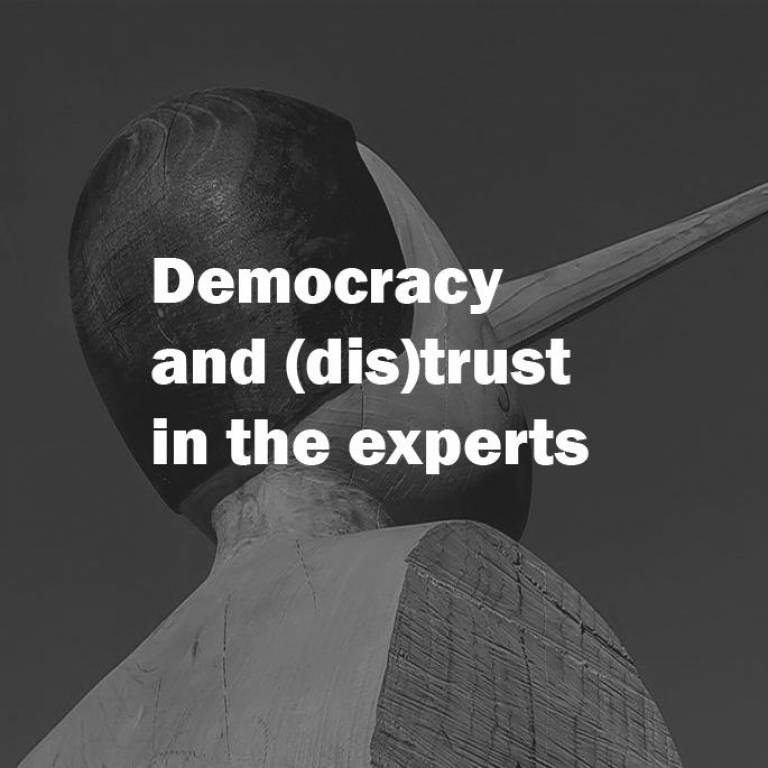Democracy and (dis)trust in the experts
24 May 2018, 6:00 pm–8:00 pm

Event Information
Open to
- All
Organiser
-
Institute of Advanced Studies
Location
-
IAS Common Ground, Ground Floor, South Wing
The IAS is delighted to welcome Dr Alfred Moore and Dr Zeynep Pamuk for this Lies seminar.
Dr Alfred Moore: Dynamics of Trust and Distrust
How are trust and distrust related? Distrust is often - at least implicitly - framed as the mere absence of trust. Yet some important strands of liberal and democratic thought (e.g. Bentham) suggest a more complex relationship: we might trust in authorities to the extent that we believe there are mechanisms in place to make them trustworthy. Specifically, the active distrust of some might generate the conditions for the trust of others. Although various theories of institutional and political trust have emphasised the importance of monitoring and vigilance to minimise the risks of trust, less attention has been paid to ways in which trust and trustworthiness can arise from practices premised on distrust. In this paper I set out to give a fuller account of the dynamics of trust and distrust, which I will elaborate with some examples from science, the economy, and politics.
Alfred Moore is a Lecturer in the Department of Politics at the University of York. He works on contemporary political theory, and he is the author of Critical Elitism: Deliberation, Democracy, and the Politics of Expertise (2017, Cambridge University Press).
Dr Zeynep Pamuk: A Political Epistemology for Uncertain Times
We believe that decisions made with more knowledge produce better outcomes. The ideal decision-maker is typically modelled as an agent with full information. At the same time, most political decision situations are defined as much by what we don't know as what we know. Modern societies must make policy decisions on the basis of expert knowledge that is uncertain, incomplete and subject to disagreement. These epistemic difficulties are compounded when non-expert decision-makers must evaluate complex information without sufficient expertise and under time pressure.
Neither the value of having knowledge, nor the fact that available knowledge is often fallible and incomplete should be controversial. Yet we have not paid sufficient attention to the implications of the fact of imperfect knowledge for how the use of expertise should be treated in political decision-making. Even when we recognize the limitations of the knowledge we have, we still act as if trying to obtain the best available approximation or to identify the correct expert would be the right thing to do. The purpose of this paper is to challenge this approach and to show that the recognition of the shortcomings of our epistemic condition should change our procedures and institutions of decision-making. I argue that we should adopt a "second-best" approach, which requires focusing on possible failures, raising or lowering evidentiary standards, employing strategies of deliberate ignorance, or shifting power and responsibility to different agents and institutions depending on the particular context and purpose.
Dr. Zeynep Pamuk is a Supernumerary Fellow in Politics at St John's College, University of Oxford.
All welcome. Please register here.
 Close
Close

